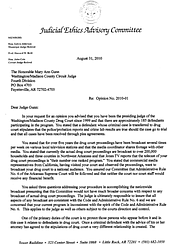Missouri's law enforcement training authority on Monday approved of adding de-escalation and racial bias training into continuing education requirements for police officers, and has tasked a committee with determining how to add an hour of training for new recruits on law enforcement's history with African American communities.
There's still a formal bureaucratic process ahead of those and other approvals made by the Peace Officers Standards and Training Commission becoming tangible realities, but the commission did follow through on its plan to act at Monday's meeting on the results of surveys this summer of law enforcement officers and the public.
The POST Commission's duties and powers include establishing minimum standards for basic law enforcement training, setting the minimum number of hours for basic training, establishing continuing education requirements, establishing minimum standards for law enforcement training instructor, and advising the Department of Public Safety director on law enforcement standards and training.
Widespread protests this year against police violence and racial injustice led the POST Commission to schedule surveys and listening sessions on what officers and members the public think about training and law enforcement in general.
The commission received more than 1,600 public responses and almost 470 law enforcement responses.
Based on that feedback, the POST Commission formed its recommendations Monday.
Commission member and Missouri Highway Patrol Capt. Benjamin Jones recommended continuing education for officers include an hour of de-escalation training and an hour of racial bias training, and the commission approved.
Platte County Sheriff Mark Owen, who is chairman of the POST Commission, said those two topics that emerged from the survey results were ones the commission needed to act on sooner rather than later.
The two hours of training will be included in and will not add to the 24 hours of annual continuing education training required.
Jefferson County Sheriff Dave Marshak recommended recruits in law enforcement academies receive an hour of training on law enforcement's history with African American communities, including on how at times police have been used to violently suppress those communities.
Marshak and fellow commission member Gary Hill - the Lincoln University Police Department's chief - will look at what the specific curriculum for that topic should be.
Department of Public Safety Director Sandra Karsten also recommended the commission look at how to make background checks of officers more consistent as they transfer between departments.
The idea would be to avoid having officers with problematic discipline records be able to transfer from one department to another without knowledge of their past problems following them.
That's not something the POST Commission necessarily has direct power to address, but Karsten said "it doesn't hurt" to have the conversation.
A committee within the commission will look at that issue.
April 13, 2021, is tentatively set as the commission's next regular meeting date.
A meeting has also been tentatively scheduled for Dec. 15 for committees to inform the commission of what they've determined so far. Karsten said final recommendations may be possible at that time.
However, once the commission approves any changes, those decisions must go through a formal process involving the governor's office, legislative committees and secretary of state.
In terms of whether the commission may consider making any other recommendations in the future, Karsten said: "This is not a one and done," and collecting feedback will be an ongoing process.



